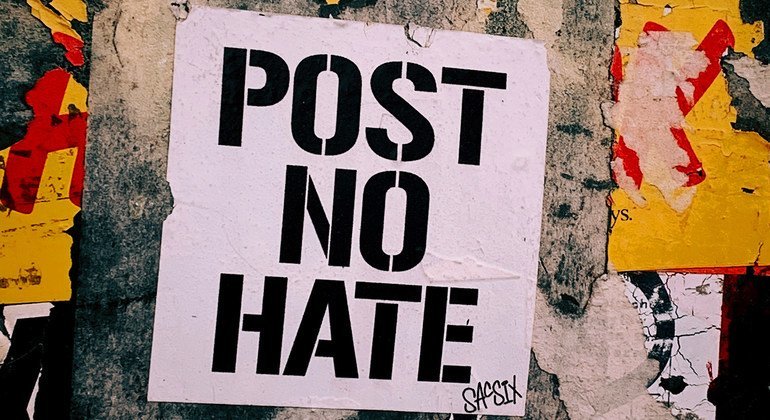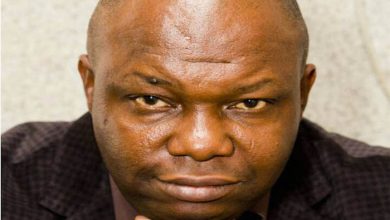Hate speech: Nations fight back

Costa Rica is known for its strong democracy, human rights stance, and deep respect for the rule of law, so it was surprising when the 2018 general elections produced an unprecedented polarization of Costa Rican society.
Allegra Baiocchi, the UN resident coordinator in Costa Rica, witnessed unprecedented social opposition, and the strong progress of populist and conservative agendas, which comes with a sharp rise in hate speech, and expressions of discrimination and xenophobia .
A study of hatred
In response to this alarming trend, the UN team in Costa Rica began rolling out its Action Plan on Hate Speech and, in 2021, launched a landmark study on hate speech in Costa Rica.
“When we started working on this issue we had many conversations about the protection of freedom of speech, and the rejection of hate speech and discrimination”, said Mrs. Baiocchi. “We know that there is a danger that the fight against hate speech is used to restrict freedom of expression, freedom of thought”.
Ms. Baiocchi and her team noticed that much of the content was focused on women, especially those in leadership positions; LGBTQ issues; and resident immigrants. “When we started talking to the women and some of the people that we have targeted, they told us that they were afraid, afraid to speak their minds,” she said.
A big issue, according to the UN chief, is that the digital space is a free space for everyone without accountability. Initially, the group tried to increase accountability, either by reporting hate speech or discrimination on the platforms themselves, or using any legal basis that exists in different countries.
But after meeting with Meta, the owner of Facebook, they found that, although the company is investing in communicating and communicating, the work is very difficult, and Meta is not able to protect or limit everything posted on your platforms. .
The Costa Rica study also looked at the dual role of the media, in relation to hate speech. “We have had cases where journalists have been victims of hate speech on the one hand, for investigating issues or opposing the government, but on the other hand have told stories in a way that can incite hatred and hatred.
Improved security
One of the results of the study in Costa Rica is the formation of a partnership with the Association of Lawyers, which studies the law and judicial process around the issue of hate which is growing around the world.
The group looked at which countries have the best type of justice and helped to create a handbook that covers the existing law that can help victims.
“Now in Costa Rica, if you have been a victim of hate speech, you can go to this manual and see what is already available to you to protect yourself,” Ms Baiocchi explained, adding that, in her view, The parliament has been a big ally, passing a law that focuses on protecting women in politics.
“A lot of schools still teach debate and it’s really about how we can work together in the world with different opinions”, said Ms. Baiocchi. “I think that’s basically the message behind any work on the issue of hate and discrimination. This is about being able to respect each other and get along. “
Listen, question, learn
Education and literacy is the cornerstone of the approach taken by the media development company “Changes”, which is based in Prague, the capital of the Czech Republic.
Jaroslav Valuch, journalism and fact-checking project manager at the organization, explained that Changes supports good quality journalism, and works on media literacy with neglected groups to avoid conflict, and improve the People revert to disinformation hoaxes and hate speech.
“If we make people desensitized to this type of information, we may be able to combat or prevent the resurgence of violence. The problem with schools and the education system, is that it takes a long time to change the curriculum, to change the system. We need some interventions that can be implemented immediately. “
Perhaps surprisingly, the sector of society that Changes has identified as important to informationalization, is its older citizens. This is because, according to Mr. Varuch, they feel excluded from society, spreading information about prison emails or private messages.
“They feel neglected,” he said. “They feel that topics that are important to them are not covered in the mainstream media. And all of these are very valid and relevant concerns. They use this information and hate speech as a stick to beat the system or the government, to make them listen to their concerns”.
To address the issue, Changes is holding workshops in public libraries, which are heavily used by the elderly. During these sessions, participants learn basic research methods, learn to look more closely at the source of the information they receive, and disseminate it.
“The ultimate goal is not necessarily to tell them not to spread fake news or unreliable sources,” said Mr. Varuch. “It’s more like saying ‘Hey, let’s enjoy some time’. And, as a by-product, we let them be exposed to information and propaganda.”
The program is now successful and operates throughout the Czech Republic, as well as in neighboring countries such as Poland, Slovakia and Hungary.
You can subscribe to our UN Podcast series, United Against Hate, here.







